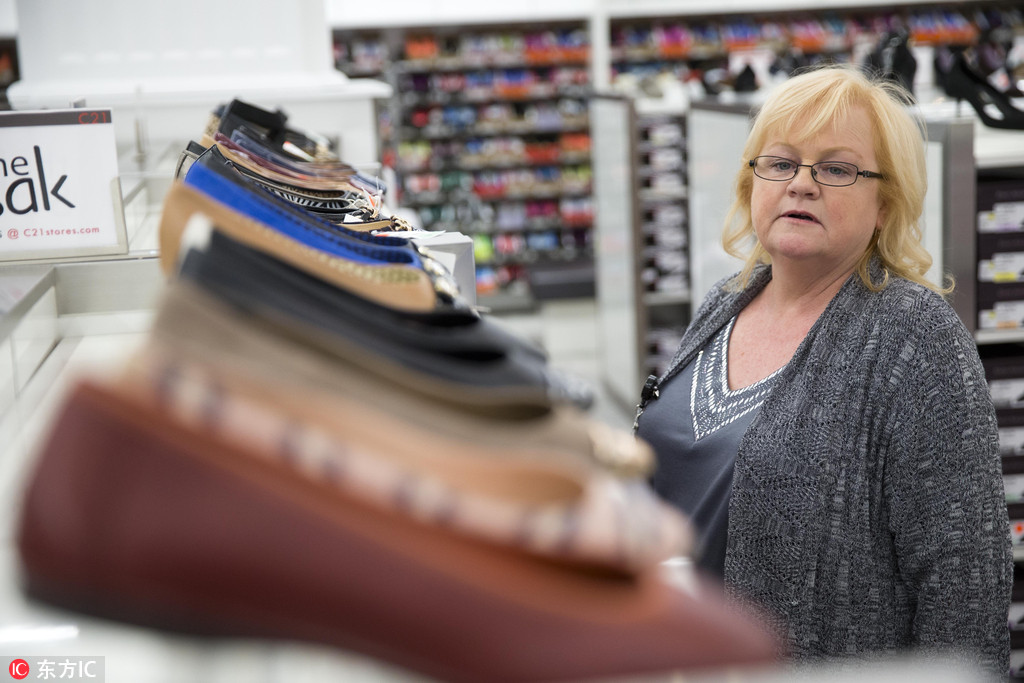US retailers say consumers will feel sting of tariffs






Federal Reserve Chairman Jerome Powell has warned that American consumers could eventually feel the sting of the US trade spat with China and other countries.
"You could see retail prices moving up," he said at a news conference in Washington on Sept 26 when announcing the Fed's decision to raise its benchmark interest rate for the third time this year, while noting that "we're not seeing it yet".
US retailers are issuing the same warning: American consumers will be seeing higher prices for items from China hit by the Trump administration tariffs that took effect on Sept 24.
The tariffs focus on thousands of items bought by American consumers, including clothes dryers, handbags, seafood, carpet, shampoo, hammers, baseball gloves, gift wrap and dog leashes.
"The entire retail industry will be hurt by tariffs," said Thomas Jordan, a spokesman from the National Retail Federation. "Virtually all major retailers sell products imported from China."
On Sept 17 the Trump administration announced that it will levy a 10 percent of tariff on $200 billion worth of Chinese imports. The White House said it would increase the duties from 10 to 25 percent at the beginning of 2019. China retaliated with tariffs on $60 billion worth of US imports on 5,207 items.
Unlike the tariff imposed earlier on industrial goods, the items on the Trump Administration's most recent list focus on thousands of everyday household items bought by American consumers.
The move also had some industry insiders worried about challenges to restructuring supply chains.
Jordan said retailers have very complex supply chains that span the globe and cannot quickly or easily change from one to the other. Even slight changes to the supply chains could drastically increase their costs.
"Both retailers who import directly and those who buy from third-party wholesalers are talking with their suppliers and vendors to assess the impact," he said.
Trump said he would consider tariffs on an additional $267 billion of Chinese goods, which would impact all goods the US imports from China. According to the US Trade Representative's Office (USTR), the US imported roughly $506 billion of goods from China in 2017.
According to Mike Priest, president and CEO of Footwear Distributors & Retailers of America, the US footwear industry paid $3 billion a year in tariffs on imported footwear, and $1.5 billion alone on footwear that came from China last year.
"It's an unmistakable fact that the higher the cost of an item as it crosses the borders, the higher that cost is going to be the consumers'," said Priest, whose trade association represents about 250 footwear companies and over 500 brands, including companies such as Nike and Under Armour.
Priest doesn't expect the tariffs to cause significant impact to holiday sales or consumer prices this year. However, he warned that this could change after the holidays as the tariff increases from 10 to 25 percent in the beginning of 2019.
Murali Gokki, a retail expert and managing director at the consulting firm AlixPartners, said retailers will have to start thinking about how to pass on some of the cost increases to consumers after the proposed 25 percent hike goes into effect in January.
Rebecca Mond, vice-president of federal government affairs at The Toy Association, said the US-China trade war will result in fewer choices and price increases and even force some companies to go out of businesses.
"In our industry, a lot of small companies, particularly the ones that are just starting out, they are trying to compete with brands that are already in the marketplace," said Mond. "One way they could compete is through more competitive price. So now with the additional cost, they can't necessarily do that."
Many retailers have actively pushed back on the latest tariffs.
In a Sept 6 letter to the US Trade Representative, Walmart, the biggest US retailer, warned that the tariffs would cause it to raise prices for household items such as car seats, crib products and bicycles.
"This round of tariffs could impact a significant number of common consumer items that are not easily replaceable," wrote Sarah F. Thorn, senior director of global government affairs at Walmart. "The immediate impact will be to raise prices on consumers and tax American businesses and manufacturers."
PetSmart, a retail chain that specializes in the sale of pet products and services, said in its public letter to the USTR that the tariff will "punish the majority of American households that own pets with higher costs for basic products needed by pet owners."
However, Gokki said not all retail products are heavily sourced from China, and those importers and US retailers that don't rely on Chinese manufacturers still have room to shift their productions to other countries.
"It's a matter of how retailers are reacting to alternate sources for the same product, and whether they can make that switch in time or not that's going to influence to what extent they will see the cost increase," Gokki said.





























